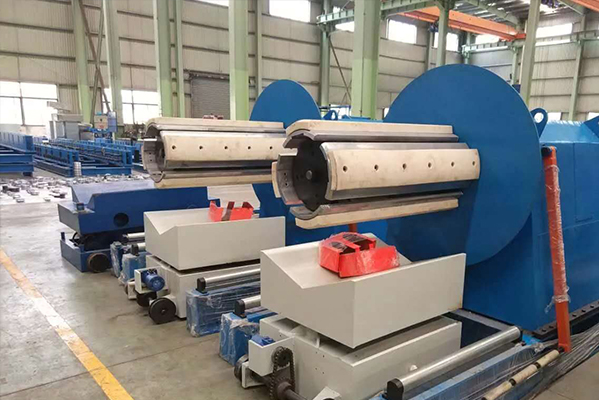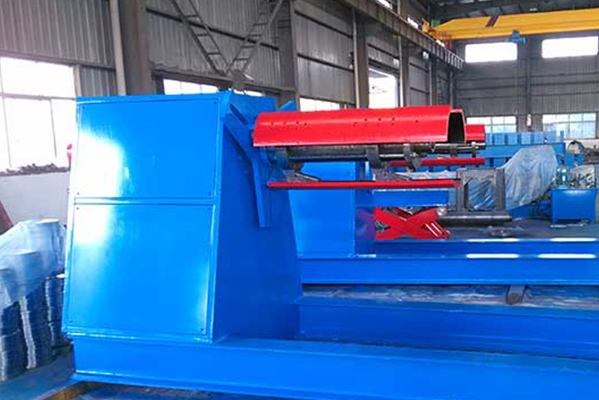Navigation Menu
Contact Us
- Email:
- info@wxavatar.com
- Address:
- Yurong Village, Yuqi Street, Huishan District, Wuxi, China.
Release Date:May 26, 2025 Visit:75 Source:Roll Forming Machine Factory
In modern manufacturing, efficiency and precision are essential for maintaining productivity. One piece of equipment that plays a significant role in metal processing is the hydraulic uncoiler. This machine is designed to handle coiled materials, such as steel or aluminum, and unwind them smoothly for further processing. Manufacturers across various industries rely on hydraulic uncoilers to improve workflow and reduce operational challenges.
This article explores the key benefits of using a hydraulic uncoiler in manufacturing processes.

1. Enhanced Material Handling Efficiency
A hydraulic uncoiler simplifies the process of unwinding heavy coils, reducing the need for manual labor. The hydraulic system provides consistent power, allowing for smooth and controlled feeding of materials into production lines. This efficiency minimizes downtime and helps maintain a steady workflow.
2. Improved Safety in Operations
Handling large metal coils manually can pose safety risks. A hydraulic uncoiler reduces these risks by automating the unwinding process. The machine's stable operation prevents sudden releases of tension, which can lead to accidents. Additionally, many models come with safety features such as emergency stops and overload protection.
3. Consistent and Precise Uncoiling
Precision is crucial in manufacturing, especially when feeding materials into stamping, cutting, or forming machines. A hydraulic uncoiler ensures uniform tension and controlled unwinding, preventing material deformation or misalignment. This consistency leads to higher-quality end products.
4. Adaptability to Different Coil Sizes
Manufacturers often work with coils of varying weights and diameters. A hydraulic uncoiler can be adjusted to accommodate different sizes, making it a versatile addition to production lines. This flexibility allows businesses to process multiple material types without needing additional equipment.
5. Reduced Wear and Tear on Equipment
Manual or mechanical uncoiling methods can cause unnecessary strain on both the material and downstream machinery. A hydraulic uncoiler minimizes this strain by providing smooth, controlled feeding. This reduces wear on cutting blades, presses, and other processing equipment, extending their lifespan.
6. Lower Operational Costs
By improving efficiency and reducing manual labor, a hydraulic uncoiler can contribute to cost savings in the long run. Fewer errors, less material waste, and decreased downtime all help optimize production budgets.

Conclusion
The hydraulic uncoiler is a valuable asset in manufacturing, offering benefits such as improved efficiency, safety, precision, and cost-effectiveness. Its ability to handle various coil sizes while maintaining consistent performance makes it a preferred choice for many industries.
For manufacturers looking to enhance their material processing capabilities, investing in a high-quality hydraulic uncoiler can lead to smoother operations and better overall productivity.